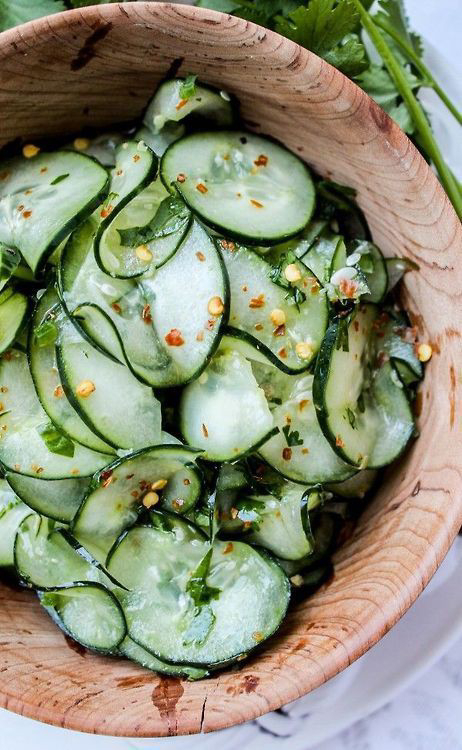Food safety has been under looked over the years but it's a very crucial step to maintaining our body health and it can result into serious Food poisoning
So Fork Gram has come out to help prevent this by giving a few tips to follow when cooking and preparing food at home or when eating out to ensure your safety, stick around
Food poisoning can also be known as foodborne illness, it is an illness caused by eating contaminated food. Infectious organisms — including bacteria, viruses and parasites — or their toxins are the most common causes of food poisoning.
*Analysis*
I.e America: yearly 1 of 6 people gets food poisoned which equates to 48 million people in America getting sick and 3000 die from food poisoning sad story right?
Symptoms include
Diarrhea
Nausea
Upset stomach
Vomiting
UNEXPECTED CAUSES OF FOOD POISONING
One should be very careful with the following foods cause they are a great cause of poisoning
1. Fresh fruit Juice
If you leave fresh fruit juice in a warm place for some time, it creates the perfect environment for bugs such as E.coli which is the most common cause of food poisoning
So you keep your juice the way you keep milk that is to say keep it in the fridge and wash down the juicing equipment thoroughly.
2. Fresh fruit
Fresh fruits are healthy in almost all ways but since they attract bacteria from the soil which spreads throughout the flesh of the fruit and can also be spread to other fruits when harvesting they can be a cause of poisoning
Wash your fruits thoroughly in water before eating them
3. Poultry and any kind of meat
Poultry and meats can harbour many pathogens which are a huge source of salmonella contamination that causes poisoning
Chicken and all kinds of meat need to be cooked at a safe internal temperature that can kill the pathogens
*Note to self* do not wash them or else you are spreading the bacteria
4. Raw eggs
Raw eggs harbour salmonella which contaminates the food , so, be careful when you eat foods that contain raw eggs for example raw cookie dough
Make sure to cook ur eggs till ready and do not half cook them
The above are unexpected causes of food poisoning so one should be very careful with them
PREVENTION
•Wash your hands
Wash your hands thoroughly with soap and water (warm or cold) and dry them:
before handling food
after handling raw food – including meat, fish, eggs and vegetables
after touching the bin, going to the toilet, blowing your nose or touching animals (including pets)
Checkout our post talking about kitchen must haves which will help you know what your kitchen needs
• Wash worktops, utensils etc
Wash worktops, knives and utensils before and after preparing food, particularly after they've been touched by raw meat (including poultry), raw eggs, fish and vegetables.
You do not need to use antibacterial sprays: hot, soapy water is fine.
• Wash dish cloths
Wash dishcloths and tea towels regularly, and let them dry before you use them again. Dirty, damp cloths are the perfect place for germs to spread.
• Use separate chopping boards
Use a separate chopping board to prepare raw food, such as meat and fish. This is to avoid contaminating ready-to-eat foods with harmful bacteria that can be present in raw food before it has been cooked.
•Store raw foods separately
It's equally important to keep raw meat away from ready-to-eat foods, such as salad, fruit and bread.
This is because these foods will not be cooked before you eat them, so any bacteria that get into the foods from the raw meat will not be killed.
•Store raw foods on the lower shelf
Always cover raw meat and store it on the bottom shelf of the fridge, where it cannot touch or drip onto other foods.
•Cook food properly till when ready on right temperatures
Make sure poultry, pork, burgers, sausages and kebabs are cooked until steaming hot, with no pink meat inside. Do not wash raw meat (including chicken and turkey) before cooking, as this can spread bacteria around your kitchen.
•Freezing raw chicken reduces the levels of campylobacter bacteria but does not eliminate them completely. The safest way to kill all traces of campylobacter is by cooking chicken thoroughly.
Keep your fridge below 5°C
•Keep your fridge temperature below 5°C and use a fridge thermometer to check it. This prevents harmful germs from growing and multiplying.
•Avoid over filling the fridge– if it's too full, air cannot circulate properly, which can affect the overall temperature.
•Do not leave the fridge door open unnecessarily.
•Cool leftovers quickly
If you have cooked food that you're not going to eat straight away, cool it as quickly as possible (within 90 minutes) and store it in the fridge or freezer.
•Use any leftovers from the fridge within 2 days and do not reheat food more than once.
•Respect 'use by dates'
Do not eat food that has past its use-by date, even if it looks and smells OK. Use-by dates are based on scientific tests that show how quickly harmful bugs can develop in the packaged food.
Has this been helpful,? well let's hope you will continue keeping your food safe.
WITH LOVE FROM
FORK GRAM ❤️





0 Comments